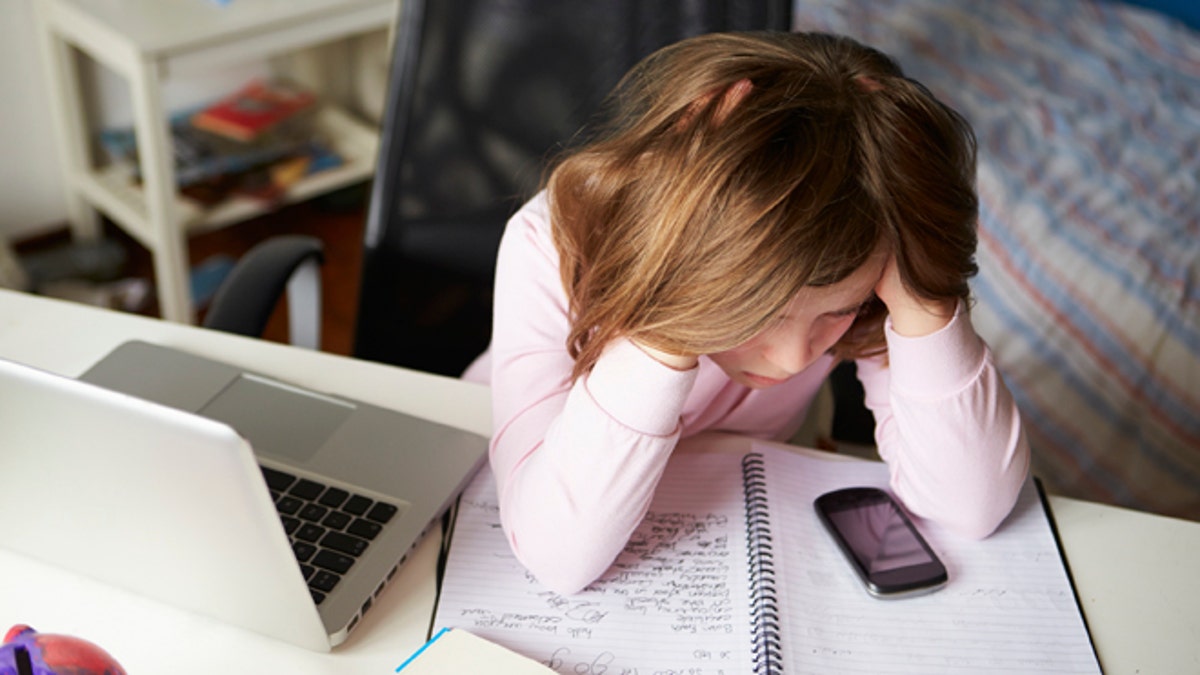Fox News Flash top headlines for November 28
Fox News Flash top headlines are here. Check out what's clicking on Foxnews.com.
Children face a deluge of electronic information from traditional television and computers to tablets, smartphones and video games, but prior studies examining the impact of electronic media on children and adults have yield mixed results.
The team of researchers from the University of Luxembourg and Universite´ de Genève studied 118 Swiss boys and girls, ranging from age eight to 12, asking them to fill out surveys with questions crafted to examine their electronic media use as well as their attention spans, sleep, grades, and mental health, according to the report.

Girl Using Mobile Phone Instead Of Studying In Bedroom
CHILDREN'S COVID-19 CASES UP 332% FROM TWO WEEKS, AGO PEDIATRICIANS REPORT
The questionnaires were also given to the children’s teachers and parents, but focused more their perception of how they felt the children’s electronic use impacted their mental health, the study noted.
Unlike other previous published studies which showed a correlation between total time spent on media and poorer outcomes, when this study controlled for other types of media consumption, they found total time spent on media did not contribute to mental health problems, but rather when the children used multiple devices simultaneously, like watching television while texting, this could lead to more stress, behavioral, or emotional issues.
"In contrast to total media time, media multitasking is associated with more frequent ADHD-like behavior as rated by their teachers, when controlling for total media time, gender, and age," the paper noted.

Could technology slow early child development? (iStock)
5 SILLY MISTAKES PUTTING YOUR ONLINE PRIVACY AND SECURITY AT RISK
The data also revealed that time spent on electronic devices increased as they grew up, starting at approximately four and a half hours a day around age eight and climbing to over eight by age 12, according to the researchers.
And yes, the research confirmed boys spent more time on video games than girls, the paper added.
CLICK HERE TO GET THE FOX NEWS APP
The study has several limitations, including they only studied a small number of children and all data are correlational, meaning no causal relationship between the variables of interest can be established unequivocally.
"These analyses reveal that media multitasking more than video gaming and total time on media was associated with adverse psychological outcomes and that media multitasking should therefore be considered more intensively in future studies," the paper concluded.
